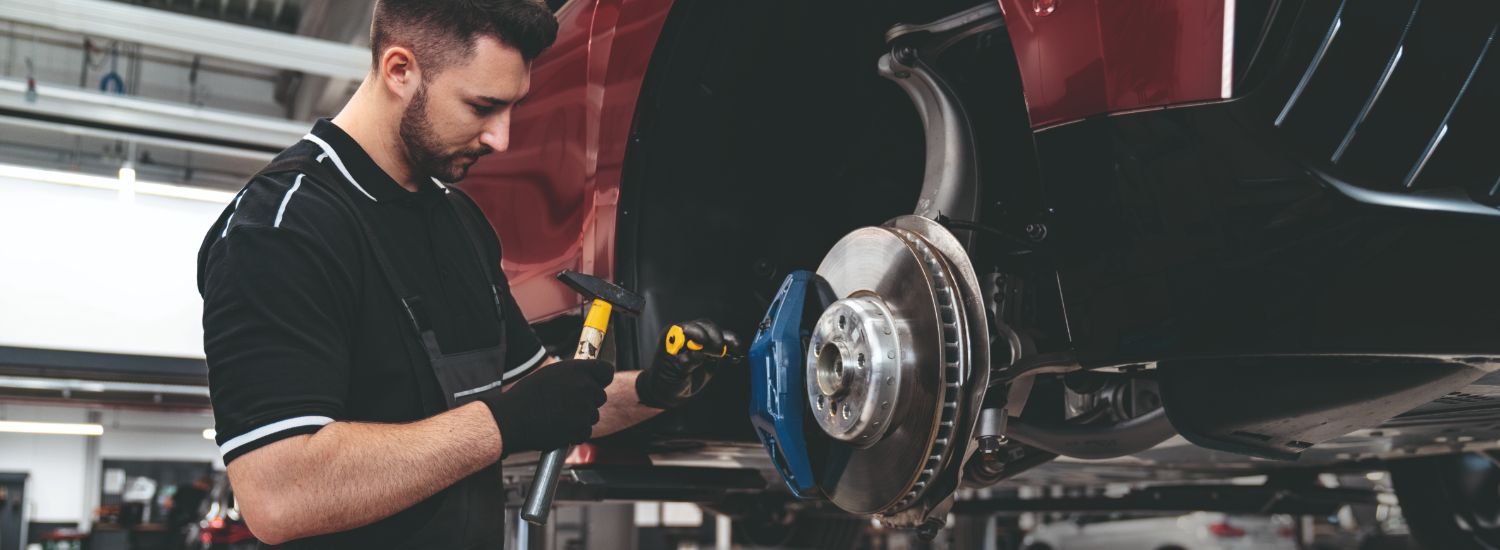BMW Electric Vehicle Service in Denver

EVs may lack gas-powered engines, but that doesn't mean your BMW EV doesn't still need maintenance. With cooling systems, suspension and brakes, HVAC, and more, your EV will still need the attention of our certified BMW service experts on a regular basis. Not sure what that means? Our team of BMW EV technicians has you covered to get you back on the road and keep your EV running like new.
Why Choose BMW of Denver Downtown for BMW EV Service?
At BMW of Denver Downtown, we're uniquely equipped to handle your EV service. With trained EV professionals, specialized equipment, and in-house charging stations, we've got everything we need to efficiently and effectively service your BMW EV in Denver.
For starters, we've got over ten EV technicians on staff, some of which have nearly ten years experience working with electric vehicles. Altogether, our team has a combined 92 years of EV experience under their belts, so they know how to take care of these new technologies. Five of our EV technicians are high-voltage certified. With a large and experience EV service team, we're able to deliver fast turnaround times to get you your EV back promptly.
Even better, we have specialized equipment for servicing EV battery packs, plus calibration tools to ensure that your EV battery is conditioned and repaired properly before going back into your vehicle. And finally, we have 10 EV loaners available to keep your emissions-free driving life while we work on your BMW EV, and we aim to always return your vehicle to you with an 80% state of charge or better.
Advantages of EV Service
Because there are fewer moving parts with a BMW EV when compared to a combustion-engine vehicle, you have less wear and tear to worry about as your vehicle racks up the mileage. No concerns about turbochargers, oil changes, exhaust leaks and corrosion due to salt, and no engine air filter to consider.
In addition, regenerative braking takes stress away from the traditional brake systems, so things like brake pads and rotors will wear less frequently than with a traditional vehicle. Overall, the cost of EV service is often considerably less than their gas-powered equivalents, helping keep more money in your pocket for the things you love.
Fluids
Even without a traditional engine, your EV still needs coolant, washer fluid, brake fluid, and gear oil.
Tires
The added weight of EVs can mean more rapid tire wear, so staying on top of proper tire pressure and regular tire rotations will be an important part of your EV maintenance plan.
Brakes
Regenerative braking prolongs brake life, but your brakes will still require inspections and replacements at regular intervals.
Suspension
The added weight means more wear and tear on suspension items, so your springs, shocks, and steering components should be checked regularly, especially if you're a spirited driver or encounter rough roads.
Annual battery check
An electric vehicle's battery is essential - even more so than that of a gas-powered car.
Filters
Your cabin air filter should be changed annually, or every 10,000 miles, whichever comes first.
Yes, EVs generally require less maintenance than gas-powered cars as there are no regular oil changes to consider.
Other than oil changes, EVs will need the same or similar maintenance as gas-powered cars, including, tires, brakes, coolant, suspension and alignment checks, and fluids.
EV batteries are typically good for 10 years and well over 100,000 miles, and many experts believe that EV batteries should be good for up to 200,000 miles before a replacement may be necessary.
Yes, the BMW EV battery warranty is good for eight years and 100,000 miles.
The best ways to preserve your EV battery’s health are to avoid running the battery to extremely low states of charge, avoid repeated harsh acceleration and any other condition that would cause rapid depletion, only use fast charging when necessary, and avoid leaving your EV parked in extremely hot conditions for long periods of time.